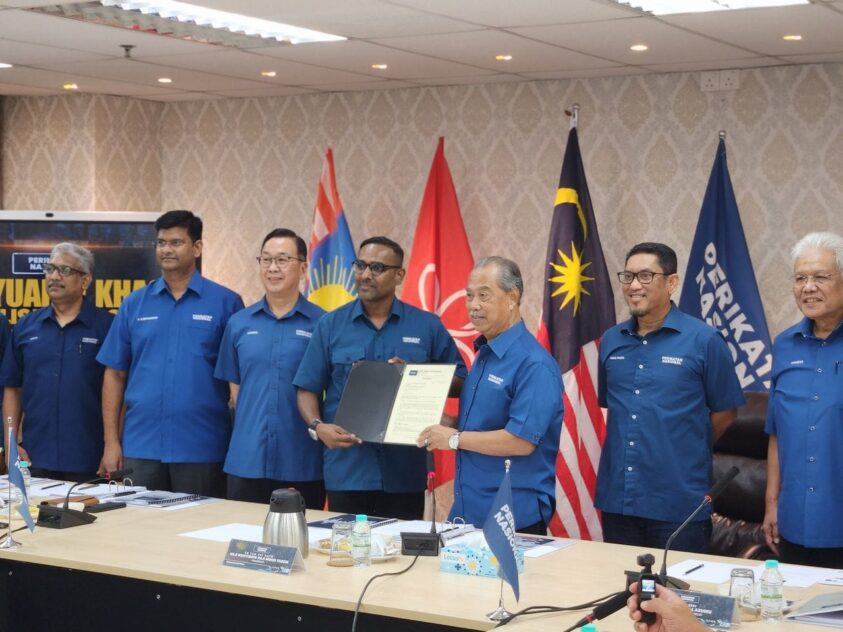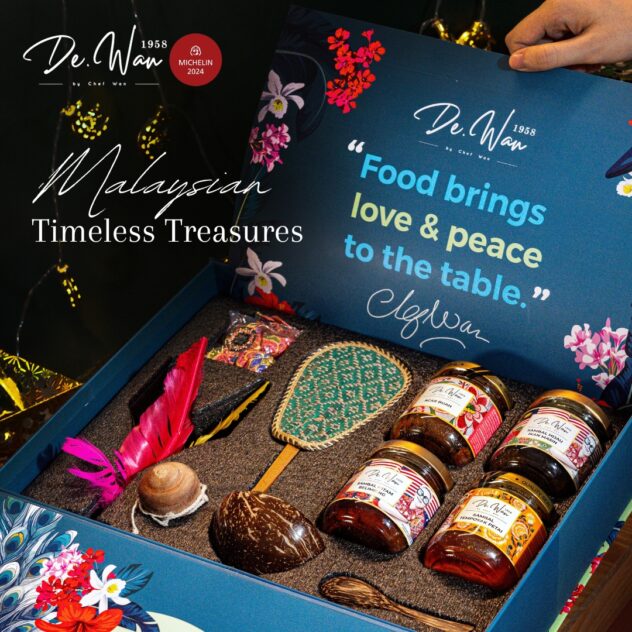By Mahbob Abdullah
I had not heard of Datuk Dr Glen Reynolds until a group of ladies introduced him to me recently. They are members of a women’s association called NAVEM created by entrepreneurs.
It was at an event attended by many heads and owners of plantations, and public figures including Primary Industries Minister Teresa Kok.
Kok, as part of the Love My Palm Oil campaign, had urged women to get all households to use palm oil. For the high tea, NAVEM had used palm oil for the curry puffs, sandwiches and cakes. Among the door gifts were vitamin E with tocotrienols and beauty products.
In her usual impassioned way, she wanted to get palm oil understood and the misconceptions removed, especially in Europe, where the negative campaigns have to stop. The future of the industry depends on it.
Despite what many might think, we still have some friends in the West.
One of them is Datuk Dr Glen Reynolds who works for the Sabah-based South East Asia Rainforest Research Partnership (SEARRP), which was established by the UK’s Royal Society in 1985 and is headquartered in the Danum Valley.
SEARRP’s mission is to enable and communicate world-class research that delivers transformative skills, sustainability and conservation impacts.
To do this, it works with over 30 of the world’s leading universities. Governments and international companies believe in its mission.
In Sabah it has over 100 scientists regularly working at a number of sites to study the species of plants, animals and insects, and find out what we can do so the environment is protected even while we aim for economic growth.
Reynolds, 49, born in Epsom, Surrey, studied horticulture at Wye College and later did his doctorate on rainforest restoration at the Imperial College.
At SEARRP he led the programme and has been there for over 20 years, including 10 living in the Danum Valley Field Centre in the rainforests of eastern Sabah.
Danum Valley covers nearly 44,000ha about 80 km from Lahad Datu. With economic activity from logging to plantations, Sabah has lost much of its natural forests.
Following logging, cocoa was planted in large areas. This was replaced by oil palm which has adapted well to the rich soil. Pollinating insects imported many decades ago have also helped in increasing the crop.
Today Sabah produces about 6 million tonnes of palm oil and kernel a year, contributing much to the economy of the state and the nation.
Villagers and smallholders also benefit because they plant oil palm on their land and sell the fruit bunches to the mills.
Preserving the cycle of life
-

Glen Reynolds
Reynolds is now the head of the research team with scientists coming in to do specific studies on the tree species and the way they store carbon from the air in trunks, branches and leaves.
The plants in turn provide the conditions for life for the elephants, pigs, wild gaurs, leopards and the millions of insects and ants as well as micro-organisms, all keeping this balance that keeps life thriving. Humans took out only for their own use.
Now it is different, and some restoration will be necessary. In the next few years Sabah’s protected forests will be increased from 1.8 million ha to 2.2 million ha, and SEARRP is working with the state government to identify where these new protected areas should be.
The drive is on with the planting of one million trees in Sabah alone, on the way to get the forest areas restored beyond the 50% level today.
For oil palm, the owners have to manage the plantations better in order to have sanctuaries and corridors for wildlife to roam and feed.
The wildlife would include the orang utan which is getting a lot of attention, and the visitors who had come to see how they live in the wild included the Duke and Duchess of Cambridge and Sir David Attenborough.
The latest screen celebrity was the Oscar-winning actor Dame Judi Dench, 84, who went to the Danum Valley earlier this year.
There she was lifted to the canopy of the trees high up and she could view with awe the plants, ferns and fungi at that level and get some idea of how they help in the production of food, and how even the smallest creatures help to recycle and preserve the habitat.
Reynolds showed a video where Dench was impressed with the work of the scientists as she listened to the briefings and as she was shown around the Valley.
A champion in Dench
I am one of her admirers, having watched her in James Bond movies and in others including The Best Exotic Marigold Hotel set in India.
She took to her roles in an understated way, was observant and I think as a person very little would get past her. She was moved with the good work being done and how palm oil has helped the people.
She was told of a small farmer who with earnings from his plot could send three children to university.
It was her interest in trees, including the oak growing on her property in Surrey, and her meeting with Reynolds that had drawn her to see SEARRP’s work in Sabah.
Now we have a champion who has come to see for herself. We need to get more people to understand the reasons we have plantations.
As Reynolds had explained, without palm oil the world would have to clear habitat eight times larger to get the same volume of oil from soya to meet the needs of the population now. Other oils do not have the same range of uses and yet would cost more for consumers.
Kok made clear that she would not want any new areas to be planted but we should raise the yield of what we have now.
This can be done by following the practices required by the MSPO (Malaysian Sustainable Palm Oil) certification scheme, which is aimed primarily at safeguarding the environment, biodiversity and the welfare of the owners of smallholdings and plantations.
When I talked to Reynolds later that evening, I realised why I had not heard of him over all these years – he has been doing his work without fanfare. Even his speech on stage was low-key.
But the impact of his work has been great and wellknown in the circles that matter. He has been recognised with a Datukship from Sabah as well as an MBE from the UK.
Could he give talks and campaign for palm oil and plantations in the West? He gave me his reply after some thought.
“I came to Sabah as a scientist and, with my colleagues, have a research programme to run. If scientists are seen to be campaigning, there is a high risk that their motives could be questioned, and I want to avoid that.
“It’s crucial that SEARRP maintain an independent position, continue to work with partners across sectors – including from the plantation industry – and provide the best possible evidence to support conservation and the sustainable management of Malaysia’s landscapes.
“There is much to keep me in Sabah. We are incredibly fortunate to work with excellent partners – the Sabah Forestry Department, Yayasan Sabah, Drainage and Irrigation Department and Environment Protection Department, to name just a few, and a number of plantation companies – with much of our work funded from within Malaysia by organisations like Yayasan Sime Darby and Yayasan Hasanah.
“I am flying back tomorrow morning.”
I felt glad to have met Reynolds who has been on the ground and knows his facts. More people should know the good work that SEARRP is doing.
Mahbob Abdullah is a former planter. Comments: [email protected]










